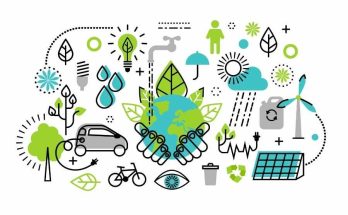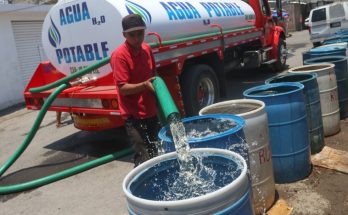By Alejandro Angulo
Many wonder about the relationship between drought and economic crisis. A current case illustrates this well. In Argentina, a most serious drought is leading to the country’s economic crisis. Let’s see why.
According to the IMF (International Monetary Fund) this will cause a deep recession with an impact of US$19 billion dollars. It is estimated that this drought will result in a 50% drop in agricultural exports and the repercussions will lead to a worsening of inflation. Argentina’s economy is considered the second largest in South America. The projection is that millions of hectares of corn, wheat, and soybean production—which are the country’s largest exports and the source of many jobs and tax revenue— will be ruined this year. Argentina’s economy already exhibits a deficit, with over 100% inflation, and its currency has lost two thirds of its value. Farmers believe that their expectation of producing 4.5 tons of soybeans per hectare will only be half of that, and this translates into an unpayable debt. Argentina is the world’s largest exporter of soybean meal and oil, and its current drought is the worst since 1929. Reports this year indicate that cattle are dying, irrigation canals have dried up, lagoons are empty, and the soil lacks the necessary moisture for agricultural production.
The IMF has cut its growth forecast for 2023 from 2% to 0.2%, and economic specialists expect the economy to shrink by 4%. Those who think that the economy does not depend on physical factors such as rain or water are totally wrong as the case of Argentina demonstrates. It shows that in the absence of water the production that generates income collapses.
Climate change has completely transformed rainfall cycles, and in addition humans have worsened the situation with emissions into the atmosphere and the waste of natural resources such as water. In the past, civilizations have disappeared due to the lack of water which led to lack of food production. In modern times, with high technology and Artificial Intelligence, it seems unthinkable to some that the economy of a country is in serious economic crisis due to a prolonged and severe drought that jeopardizes production of agricultural products.
Not even nearshoring can save Argentina from the economic crisis. There may be those who think that it is time for them to reconfigure their economic model so as to not depend on exports of agricultural products. But not even the United States, a developed and industrialized country, could stop producing agricultural products because it gets a high income from its exports as well as it being a source of control and power. Last year in Europe, the lack of imported food caused an increase in prices and led to certain limitations because they depend to a large extent on food from other countries such as India, China, and Russia.
The Bank of Mexico (Banxico) estimated that Mexico’s agricultural sector, the manufacturing industry, and water supply could lose the equivalent of 0.56% of the gross domestic product (GDP) —or 102 billion pesos per year. Some economists believe that “drought affects supply because it is reduced and prices rise. This situation adds to the increase in the price of commodities at the international level.» We must remember that drought is a meteorological phenomenon associated with climate change, and it can occur anywhere and at any time. It is characterized by scarcity or absence of water. Both droughts and floods are the result of an alteration in the atmospheric dynamics of humidity.
Water is the most valuable resource for an economy for the development of large and important industries around the world and for the proper functioning of the planet’s natural cycles. Therefore, beyond being an economic good for the functioning of society, water is vital for sustaining life. The UN also recognizes that “water is an essential component of economies and is necessary to create and maintain jobs in all sectors of the economy. Eight sectors depend on water and natural resources.” Agriculture is one of these sectors.
It is estimated that more than 1.4 billion jobs, or 42% of the global workforce, are highly dependent on water. Another 1.2 billion jobs, or 36% of the global workforce have a moderate dependency on water. The simple equation is that 78% of the jobs that make up the global workforce depend on water. Insufficient or irregular water supply affects the quality and quantity of employment in the agri-food sector, limits agricultural production, and compromises income stability. Agriculture plays a very important role in supporting livelihoods especially for the poorest members of society. Water scarcity, exacerbated by climate change, could lead to a reduction of up to 6% in gross domestic product (GDP) in some regions, trigger migration, and generate conflict according to a new World Bank report. The president of the World Bank states: «Water scarcity constitutes a major threat to economic growth and stability in the world, and climate change is aggravating the problem.»




